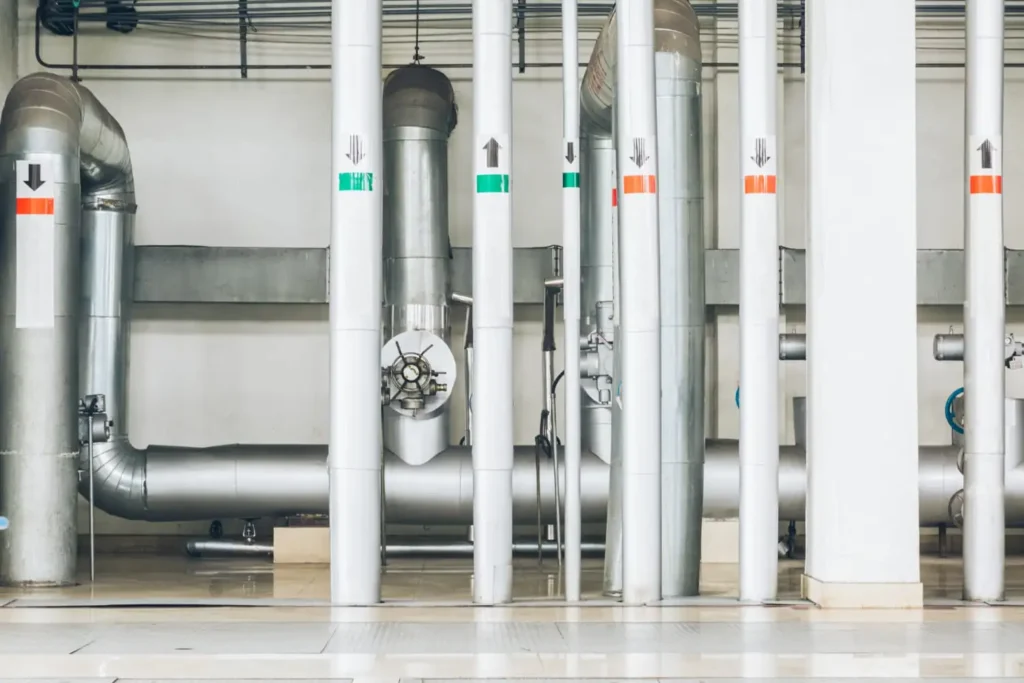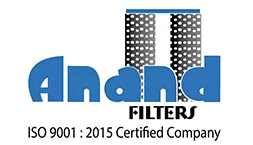
Advanced Air & Gas Filtration in the Food, Pharma & Biotech Sectors: Ultra-High Efficiency Trends 2025
In 2025, air and gas filtration will be in greater demand across key areas of biotechnology, pharmaceuticals, and food. Because of the greater emphasis on worldwide contamination control, sterility, and safety, filtration quality is increasingly important in modern production.
Maintaining cleanroom conditions is essential in areas where small amounts of contamination could lead to significant loss or failure to comply with regulations. For this reason, rising demand has accelerated the development of ultra-high-efficiency filters that capture the smallest airborne particles, bacteria, and aerosols.
This technology trend, expected to be prominent in 2025, will result in dramatic changes in air quality control, greater attention to improving sustainability, and greater assurance.
Understanding Air & Gas Filtration Systems
Air & gas filtration across a wide range of industries is essential for developing effective methods to remove contaminants from air and purify it. You can adapt these filters to capture different types of airborne pollutants.
Air filters are handy for eliminating odors and gaseous contaminants in the air. They are used extensively in industries where control of air purity is paramount for safety and product quality, such as manufacturing, chemical, and pharmaceutical industries.
Key Components of Filtration Systems:
Pre-filters: These filters, which eliminate rubber particles and larger dust and debris, protect those downstream.
High Efficiency Particulate Air [HEPA] and Ultra Low Penetration Air [ULPA] filters: Industries use these filters in high-purity applications because they excel at capturing tiny particles.
Activated charcoal filters: These filters absorb and trap gaseous molecules through the charcoal’s porous structure.
The specific needs of the industry—such as airflow speed, purity, and contamination levels—determine which system is used. The combination factors are essential for safety, regularity, and the continuity of effectiveness, and in this connection, it is necessary to enlist the services of a competent filter manufacturer.
For example, Anand Filters, a well-known brand in industrial filtration, offers customized air and gas filtration systems made to be long-lasting and highly efficient.
Pharma Air Filtration — Ensuring Sterility and Product Safety
Pharma air filtration is critically important to the pharmaceutical industry for ensuring sterility of production, packaging, and storage.
The life science industry plays a key role in improving healthcare by developing new medicines and advanced technologies which enhance patient care and outcomes. Laboratories, clean rooms, and manufacturing areas that produce new pharmaceutical products, vaccines, drugs, and medical devices must maintain a clean environment.
Pharma air filtration systems keep these environments free of contamination, disease-causing agents, and product contamination, ensuring safety for vital pharmaceutical processes, equipment, personnel, and ultimately the finished product.
Airborne contaminants may enter the building through vents, air conditioners, exterior ventilation, or air movement from other parts of the building. Additionally, they could come from items used in the facility, such as plastic, compressed gas, sterilizing and cleaning supplies, and stored products.
If the carefully controlled environment is not maintained, two critical areas of concern can suffer within the pharmaceutical industry:
Product safety: Any contamination can compromise a drug’s effectiveness and render it dangerous or ineffective.
Employee health: Employees in the pharmaceutical manufacturing industry are constantly exposed to dust, raw ingredients, and potentially harmful substances. Because nanoparticles are submicron in size, they can be easily inhaled by employees manufacturing new products.
Food Industry Air Filtration — Safeguarding Hygiene and Quality
In the food industry, air filtration is an important step that must be performed to follow safe hygienic practices and prevent product spoilage, as it eliminates dust, moisture, bacteria, and other particulates from the air before they come into contact with food items or equipment. If the air is not fully filtered, invisible contaminants can result in a loss of quality and safety.
To understand why food industry air filtration plays such a vital role in maintaining product safety and compliance, it’s essential to look at the key benefits it provides during food processing and packaging:
Particle Removal: Airborne impurities in the food processing industry include dust, pollen, allergens, and microorganisms such as mold spores and bacteria. These impurities may damage the quality and safety of food products.
Preservation of Product Integrity: The food industry must maintain product integrity, as airborne particulates can settle on equipment and surfaces, leading to spoilage and cross-contamination.
Compliance: The food processing industry must comply with government regulations and trade association standards. Inadequate air filtration may result in violations and hefty financial fines.
Biotech Filtration Systems — Precision at the Molecular Level
Biopharmaceutical manufacturers use biotech filtration systems to remove pollutants and process impurities—including viruses and particles—and to control bioburden. For the successful manufacture of biotherapeutics, effective filtration processes are thus necessary.
However, the role of biotech filtration systems is continually changing as bioprocesses are developed, driven by the scaling up of processes and the biochemical complexity of therapies.
There are many applications for filtration in biotech facilities. Among these applications are cell culture, fermentation, laboratory air handling, and downstream processing.
Since living organisms are used in bioprocesses, a minimal amount of contamination can affect entire batches or alter test results. Thus, systems for air and gas filtration ensure quality, consistency, and accuracy.
The incorporation of artificial intelligence (AI) into biotechnology manufacturing offers unprecedented opportunities for innovation, efficiency, and accuracy, representing a new dawn in the industry.
2025 Trends in Ultra-High Efficiency Filters
One of the things that we hardly consider until it becomes an issue is clean air. In fact, the quality of the air we breathe directly impacts our health, and it is becoming increasingly complex to deny this as pollution levels continue to rise each year. Industries’ approaches to air & gas filtration are changing as a result of the next generation of ultra-high efficiency filters.
It is hard to ignore the changes the business is going through as we move to 2025. Stricter health regulations, increased awareness of air pollution, and the growing need for more intelligent, effective solutions are all driving demand for future air filters.
Modern air quality monitoring systems ensure you always know what is in the air you breathe, and advanced HEPA filter improvements can now capture even the smallest particles. Simultaneously, AI-powered smart air filters and IoT-based air & gas filtration are raising the bar for performance and ease of use.
Selecting the Right Filtration Partner
Selecting the appropriate partner for air and gas filtration can affect how reliably your business operates and complies with regulations. When assessing filter manufacturers, you should base your decision on several factors.
- Seek out a supplier who sees the alliance as an alternative to a business deal. A supplier who shares your beliefs and objectives might promote a more cooperative and fruitful working relationship.
- The most crucial factor is the caliber of the goods or services your provider offers. Seek out a provider who has a good track record of providing reliable, superior products that satisfy your requirements.
- A supplier with knowledge and experience in the field might offer insightful advice. They ought to be aware of the unique requirements and difficulties faced by your sector.
- Verify the supplier’s ability to satisfy your present and future needs. As your company expands, scalability is essential to avoiding supply shortages.
- Make sure the supplier has robust quality control and testing procedures in place for businesses where product quality is crucial.
Anand Filters is a prime example of a reliable supplier of high-quality, personalized filtering products.
Conclusion
As we move deeper into 2025, air & gas filtration is at the forefront of sustainability, safety, and technology. Ultra-high-efficiency filters, intelligent monitoring systems, and environmentally friendly designs that reduce operational costs and negative environmental impacts are becoming increasingly popular.
In the food, pharmaceutical, and biotech industries, effective air and gas purification is a legal requirement and a fundamental basis for quality and customer confidence.
In addition to complying with regulations, partnering with experienced filter manufacturers that understand these changing demands will drive continuous innovation and improved operational performance.

